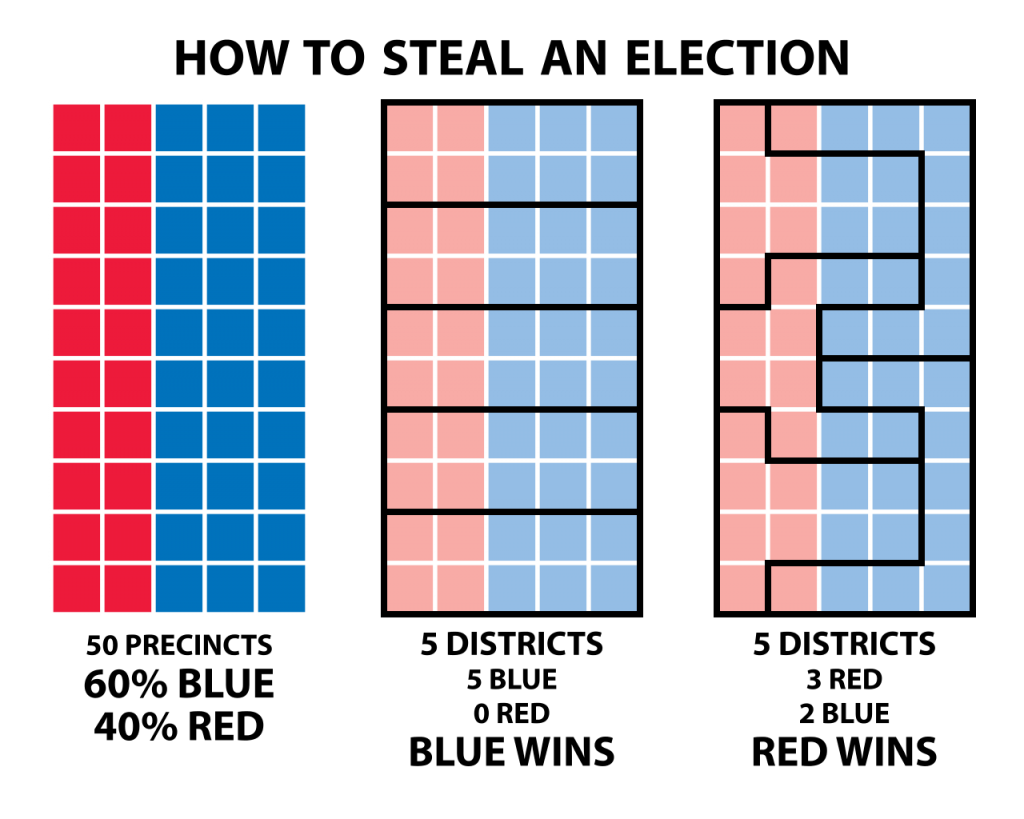The only election that most people care about is eight months behind us, and regardless of how anyone feels it was a rollercoaster in every sense of the phrase. However, with the presidential election slowly leaving the minds of the American people we edge closer and closer to mid-term elections. The mid-terms are well known to have far less turnout than the presidential cycle and are a lot less publicized, and this can make some of the decisions being made even more at risk for manipulation. One of the key ways that our elections are influenced is through our own politicians when on a census year they redraw district lines in order to make representative voting groups. This is important for our voting system to have because it ensures that districts have roughly equal voting power and makes sure that no one group has more voice than another… when done correctly. Currently, our elected officials redraw the district lines, and they are rarely impartial. When districts are intentionally redrawn to benefit the outcomes of elections for the party drawing the lines this is called gerrymandering.
Gerrymandering has been the topic of a lot of court cases, although it has been difficult to prove that it has been intentional due to the difficulty of finding evidence in cases of this type. However, there is some hope that the issue is being taken seriously. The Supreme Court is currently reviewing a lower court’s decision in Gill v. Whitford, and if it upholds the lower court’s decision it will mean the implementation of a plan to reduce gerrymandering in the future.
However, gerrymandering is a powerful tool that our political parties use to fight each other and it has been difficult to get the method out of politicians’ hands and into independent non-partisan ones. In Michigan alone in the 2016 election voters were split exactly 50-50 for the state legislature, which should have resulted in the same distribution of seats between the Democrats and Republicans. Instead, Republicans won 63 and Democrats 47. Republicans won 26 percent more seats than what the electorate voted for. This is the power of gerrymandering, and it takes the power away from the voters of the United States.
I believe that we can not have a truly representative government until the votes of the people are truly their own and not manipulated by the officials currently in office. This has become even more important considering the next census is in 2020 as well as another major election. Who will get to decide who wins? Depending on how the Supreme Court rules it could be us; then again… maybe not.



